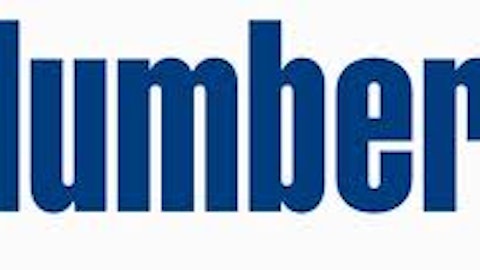For about a year, oil major BP plc (ADR) (NYSE:BP) has been the largest position in the Baupost Group’s portfolio, according to 13Fs filed with the SEC (we track 13Fs as part of our work developing investment strategies; we have found, for example, that the most popular small cap stocks among hedge funds earn an average excess return of 18 percentage points per year). In the first quarter of this year, Baupost- which is managed by Seth Klarman, whose 1991 investing book Margin of Safety has sold for as much as $1,500- increased its holdings of BP plc (ADR) (NYSE:BP) by 57%, to a total of over 17 million shares. See more of Klarman’s stock picks.
BP plc (ADR) (NYSE:BP)’s revenue slipped slightly last quarter compared to the first quarter of 2012, though earnings per share showed substantial improvements and adjusted EPS beat analyst expectations. The company has been selling off some of its assets in order to fortify its balance sheet, though BP plc (ADR) (NYSE:BP) has been increasing its quarterly payments over the last couple years as management has become more confident in its cash flows. Currently investors receive quarterly payments of 54 cents per share, which equates to a dividend yield of 5%. Dividend payments are still well below what they were in early 2010 prior to the Deepwater Horizon disaster, however.

Other oil majors include Exxon Mobil Corporation (NYSE:XOM), Chevron Corporation (NYSE:CVX), ConocoPhillips (NYSE:COP), and Total (NYSE:TOT). Of these four companies, ConocoPhillips (NYSE:COP) and Total stand out for offering dividend yields of 4.3%- still lower than what BP plc (ADR) (NYSE:BP) pays, but possibly with less company related risk. Total also offers a forward earnings multiple competitive with BP’s, but this is based on analyst expectations that the company’s earnings per share will increase over the next year and a half, even though both revenue and net income have actually been down. The trailing P/E is still fairly low at 9, but we aren’t sure it’s that good a deal compared to BP. Financial performance has also been weak at ConocoPhillips, with earnings down 27% in its most recent quarter compared to the same period in the previous year, and with a forward P/E of 10 we think that we’d avoid it.
Chevron Corporation (NYSE:CVX) and Exxon Mobil Corporation (NYSE:XOM) have done somewhat better: while revenue at each of these companies fell in the first quarter of 2013 versus a year earlier, there was little change on the bottom line. However, these two oil majors join their improved performance with reduced income opportunities- their current yields are 3.3% and 2.8%, respectively. Exxon Mobil, often recognized as the industry leader and with a market capitalization of roughly $400 billion, carries a premium to the other companies we’ve discussed in terms of earnings multiples as well- it is priced at 11 times consensus earnings for 2014. Chevron, meanwhile, carries trailing and forward P/Es of 9 and 10 respectively showing that the sell-side is forecasting continued modest declines in EPS next year. That’s still a low valuation in absolute terms, but we can see that oil majors in general are cheap and the stock’s discount relative to Exxon Mobil is quite small.
Given the combination of recent performance and valuation (at least in terms of analyst expectations) BP seems to be one of the more attractive oil majors, and certainly should appeal to income investors given its high yield. There are certainly risks for the company but overall we do think that it is worth further research.
Disclosure: I own no shares of any stocks mentioned in this article.





